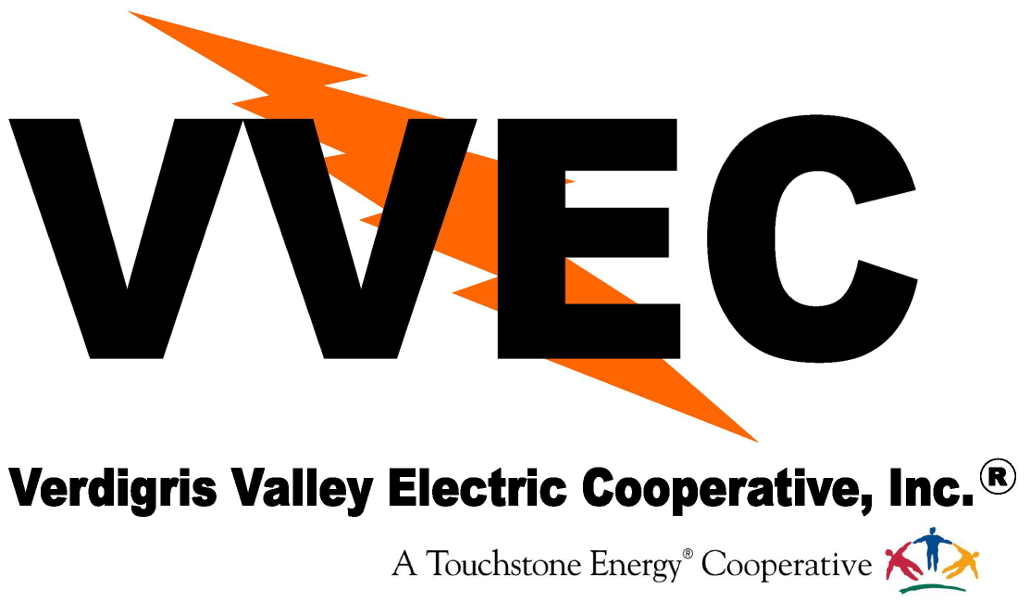VVEC is dedicated to providing our members with quality, reliable electric service. However, from time-to-time outages do occur. We want to help you prepare for power outages and provide tips you can use to keep your family safe.
To report a power outage, call VVEC at (918) 371-2584, or if it is long distance, call 1-800-870-5948.
Before you call to report an outage, check your main breaker or fuse disconnect at the house or on the meter pole, and look to see if your neighbors have power. Reset the breakers on the pole if they have tripped.
When you call, provide the following information:
-
The name on your VVEC account
-
Your telephone number
-
Your 10-digit VVEC account number. This gives us your precise location
-
Time the power went off (if known)
-
Any observations you have made - downed wires, trees on the line, or if you heard an explosion
Please be patient if the lines are busy. During major outages, our telephone lines are crowded with members calling in. Calls are answered 24 hours a day, and answered in the order they are received.
Emergency Generators:
Investing in emergency generating equipment is a personal judgment based on your needs for un-interrupted service.
Installing a generator is not a do-it-yourself project. Have a qualified electrician install your generator according to the National Electric Code and local ordinances. If you use a generator, make sure it has a transfer switch that disconnects it from main power lines. This is a National Electric Code requirement. A generator improperly connected to main power lines can backfeed power onto the lines, shocking unsuspecting utility workers. A direct-connected generator also may result in a short circuit that can damage the electrical system or create a fire hazard. The generator itself may be damaged or destroyed.
Keep safe:
Never touch a downed wire. Stay away from it, and keep others away, too. Report it immediately to VVEC or consider reporting it to local police or the county sheriff’s office, so an officer can guard the line.
Other outage safety tips:
-
Don’t operate lanterns, heaters or fuel-fired cook stoves without adequate ventilation.
-
Don’t burn charcoal indoors - it releases carbon monoxide.
-
Don’t store fuel inside your home.
-
Wipe up any fuel spills immediately.
-
Don’t allow children to carry candles or oil lamps around the house.
Additional outage information:
Water Supply:
In a prolonged power outage, lack of water can become a real problem. Store several gallons of drinking water for such emergencies. Use clean glass or plastic containers; metal can oxidize and give the water an unpleasant taste. Plastic containers are preferable because they don’t break. If you cannot sterilize the container, boil the water before storing it. Water in tightly sealed containers will stay fresh indefinitely. For an extra measure of safety, boil the water before use.
The Freezer:
Do not open the freezer during an outage - it shortens the time that food will stay frozen. Food will remain frozen, depending on room temperature and loading. (A full freezer will stay colder longer.) To be prepared in advance for a possible power outage, freeze water in slightly under filled plastic jugs and use them to fill empty spaces.
You may safely refreeze foods that have thawed if they still contain ice crystals or if they are still cold and have been held at this temperature no longer than 1-2 days after thawing. Food warmed to 40 degrees or higher should be discarded.
Examine each package of food. If the color or odor of the thawed food is questionable, discard the package.
Do not refreeze foods that are highly susceptible to food spoilage, such as poultry, seafood, ice cream or cream sauce mixtures.
The Fridge:
In warm weather, the refrigerator will warm quickly, whether the door remains closed or not. Use perishable foods as soon as possible and discard the rest.
In winter, outdoor temperatures will provide good refrigeration. Another option: Freeze a bucket of water outside and put it in the fridge to help keep it cool.
Other Appliances:
Turn off all appliances that were operating when the power went off, including your heating system. Leave on one light so you will know when service has been restored.
Make sure to turn off the oven or stove burners if they were on when the power went off - this prevents a fire hazard if power is restored when no one is home.
If you drain your electric water heater to prevent damage from freezing, turn off the appropriate circuit breaker or remove the necessary fuse to disconnect the water heater. Otherwise, you could burn out the heating elements if power is restored while the water heater is empty.
If you have an automatic garage door opener, consult the manufacturer’s instructions on how to open the door during an outage. If you don’t have a manual, call your home builder or garage door service dealer.
